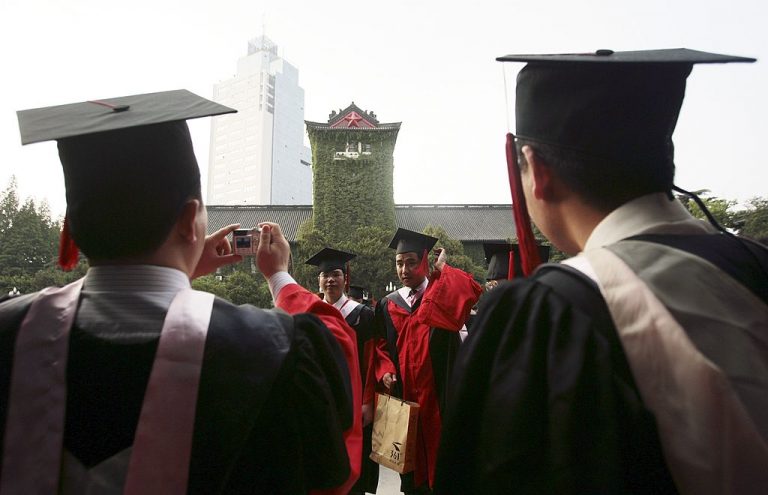A college teacher in southern China was harshly criticized and reported by a student for saying that “Japanese people have a tendency to keep improving” in his architectural culture class. Faculty staff then transferred him to work in the library and notified him that he was no longer allowed to teach classes anymore.
Li Jian, Ph.D. graduated from Fudan University and was a teacher at Hunan City College. On April 28 he posted an article online sharing his experience of when he was teaching “Introduction to Architectural Culture” at the college. Li said that during the class, a student also identified by the last name of Li stood up banging the desk in disapproval, cursed him out and reported him to the school.
According to Li Jian, nothing he said in the class involved politics, nor any improper political remarks; he had just said that: “The Japanese people tend to keep improving.”
A school leader commented that the situation was biased because “not every Japanese person is like that.”
Another also criticized the professor by saying, “When students make trouble, that means you’re problematic.”
“Students are encouraged to report teachers. It becomes a kind of game where this toxic culture prevails,” Li Jian said. “For me, it’s a tragedy; for the school, it’s pathetic.”
Success
You are now signed up for our newsletter
Success
Check your email to complete sign up
He said a common phrase is frequently connected with national dignity and political correctness. “It’s hard to survive,” he added.
During and prior to World War II, Imperial Japan invaded and occupied much of northern and eastern China, killing an estimated 20 million people. Despite not playing a major role in the war and even thanking the Japanese army for helping weaken the legitimate Chinese government, the Chinese Communist Party (CCP), the Party now uses the pains from the war to stoke nationalist sentiment.
According to a statement issued by the university’s staff office, Li Jian was transferred away from faculty because “he was incapable of guiding students to establish core socialist values” and “failed to educate talents for the party and the country.”
Li Ang, a current affairs commentator for Hunan Province, told Radio Free Asia on Nov. 9 that the Chinese Communist regime’s strategic control of public opinion entails restricting people’s opinions to prevent mass protests.
The incident reflected a trend of surveillance in colleges and universities, Li said.
In the past five years, more than a dozen college teachers in China have been reported by students and suspended from teaching, transferred to other positions or terminated.
In May 2018, Zhai Juhong, an associate professor at Zhongnan University of Economics and Law, a key national university located in the city of Wuhan, was dismissed for criticizing Beijing’s policies to abolish the term limit in his “Principles of Political Science” class.
In August 2018, Yang Shaozheng a professor at the Institute of Economics in Guizhou University disclosed that CCP officials and related staff cost Chinese citizens a lot of money, citing the figure as upwards of 20 million yuan (approximately US$3.13 million) every year. He was promptly expelled because of “politically incorrect remarks.”
In May 2020, Lin Qi, a professor at Harbin Normal University, was dismissed by the school after he was accused of anti-Marxism, anti-communism and challenging the authority of the law.














